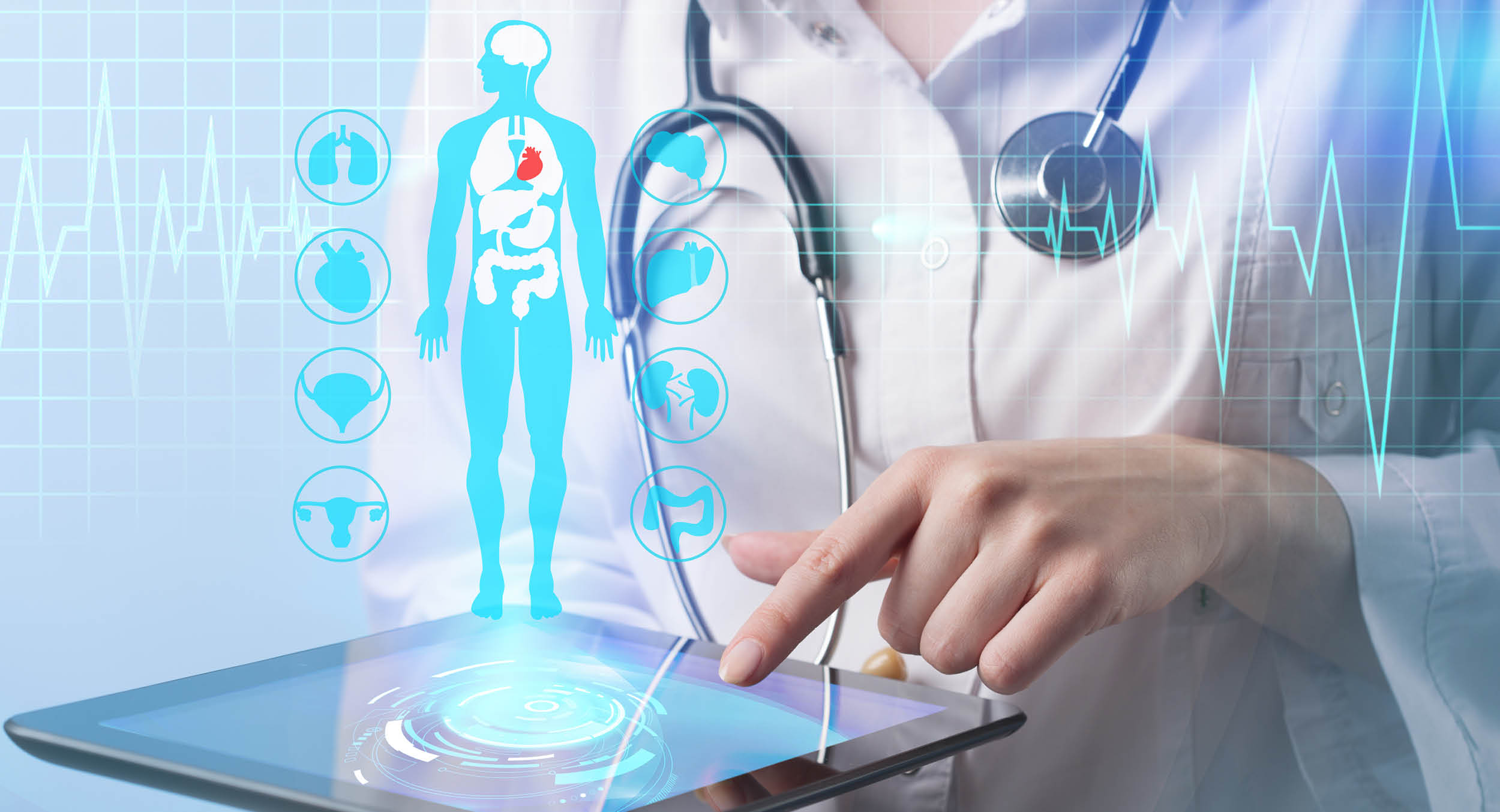The rapid advancement of technology is transforming every industry, and healthcare is no exception. Modern healthcare is quickly becoming increasingly dependent on new technologies such as artificial intelligence (AI), telehealth, and data analytics.

Three Transformative Healthcare Insights Organizations Must Prioritize - Source futurehealthcaretoday.com
Editor's Notes: "Unveiling The Impact Of New Technologies On Modern Healthcare: Insights From Thought Leaders" have published today as the new technologies impact our daily life. We all know the importance of healthcare in our life. It covers all aspects of our life. And in this modern era, it becomes more supreme than ever before. Therefore, to understand how "Unveiling The Impact Of New Technologies On Modern Healthcare: Insights From Thought Leaders" important in depth we come with this article.
Our team has analyzed relevant data, we have put together this guide to help you understand the impact of new technologies on modern healthcare. We hope this information will help you make informed decisions about how to use these technologies to improve your health and the health of your loved ones.
Key Differences:
| Feature | Traditional Healthcare | Modern Healthcare |
|---|---|---|
| Treatment | Reactive, focused on treating symptoms | Proactive, focused on preventing and predicting disease |
| Technology | Limited use of technology | Extensive use of technology, including AI, telehealth, and data analytics |
| Patient Experience | Passive, with patients having little control over their care | Active, with patients playing a key role in their care |
| Cost | Rising costs | Potential for lower costs through efficiency and prevention |
Transition to Main Article Topics
The following are some of the main topics that will be covered in this guide.
- The impact of AI on healthcare
- The role of telehealth in modern healthcare
- The use of data analytics to improve healthcare
- The challenges and opportunities of new technologies in healthcare
FAQ
This FAQ section delves into common questions and concerns surrounding the impact of new technologies on modern healthcare, as discussed in the article Unveiling The Impact Of New Technologies On Modern Healthcare: Insights From Thought Leaders.
Question 1: How are new technologies revolutionizing the delivery of healthcare services?
New technologies such as telemedicine, AI-powered diagnostics, and wearable health devices are transforming healthcare delivery. Telemedicine enables remote consultations, expanding access to healthcare in underserved areas. AI assists in disease diagnosis and treatment planning, enhancing accuracy and efficiency. Wearable devices monitor vital signs and lifestyle data, promoting personalized and preventive care.
Question 2: What are the ethical considerations surrounding the use of new technologies in healthcare?
Ethical concerns include data privacy, algorithmic bias, and the potential for job displacement. Data protection regulations and responsible AI practices are crucial to safeguard patient information. Algorithms must be unbiased to ensure equitable treatment. Moreover, the transition to new technologies should be carefully managed to minimize job losses and promote workforce retraining.
Question 3: How can healthcare providers effectively integrate new technologies into their practices?
Successful integration requires a strategic approach, including staff training, infrastructure upgrades, and patient education. Healthcare providers should identify technologies that align with their goals and invest in their implementation. Training programs empower staff to use new systems and leverage their capabilities. Patient education promotes acceptance and understanding of technological advancements.
Question 4: What are the challenges associated with the adoption of new technologies in healthcare?
Challenges include cost, regulatory hurdles, and resistance to change. The implementation of new technologies can be expensive, and healthcare providers must carefully evaluate the return on investment. Regulatory compliance and data security standards need to be met, which can be time-consuming. Additionally, some healthcare professionals and patients may be hesitant to embrace new technologies, requiring targeted efforts to overcome resistance.
Question 5: How do new technologies empower patients in their healthcare journey?
Empowerment comes from access to health information, personalized care plans, and convenient communication with healthcare providers. Online health portals provide patients with reliable health information. Patient portals allow them to manage appointments, request prescriptions, and access their health records. Mobile health apps cater to individual needs, offering tailored health recommendations and self-management tools.
Question 6: What are the future trends in the use of new technologies in healthcare?
Emerging trends include the use of virtual reality for surgical training and rehabilitation, precision medicine tailored to individual genetics, and blockchain technology for secure patient data management. The continued advancement of technology holds the promise of further enhancing healthcare delivery, promoting precision, personalization, and accessibility.
These FAQs provide a comprehensive overview of the key issues surrounding the impact of new technologies on modern healthcare, as explored in the article Unveiling The Impact Of New Technologies On Modern Healthcare: Insights From Thought Leaders. By addressing common concerns and highlighting the opportunities, this section aims to foster a deeper understanding and appreciation of the transformative role of technology in shaping the future of healthcare.
To delve further into this topic, we encourage you to explore the full article referenced above for a more nuanced examination of the subject matter.
Tips
Incorporating new technologies into healthcare systems offers numerous benefits, but requires careful planning and execution. Here are five essential tips to maximize the impact of these technologies:
Tip 1: Identify Clear Goals and Objectives
Determine the specific areas where technology can enhance patient care, streamline operations, or improve outcomes. Align technology investments with these goals for effective implementation and measurable results.
Tip 2: Foster a Culture of Innovation
Create an environment that encourages healthcare professionals to embrace and explore new technologies. Provide training and support to foster a culture of continuous learning and innovation, ensuring the organization remains at the forefront of advancements.
Tip 3: Collaborate with Technology Experts
Partner with reputable technology providers and healthcare technology consultants to gain access to specialized knowledge and expertise. Collaborations can optimize technology implementation, ensure compatibility with existing systems, and provide ongoing support.
Tip 4: Prioritize Data Security and Privacy
Ensure robust data security and privacy measures are in place to protect sensitive patient information. Implement encryption, authentication, and access controls to safeguard data from unauthorized access and breaches.
Tip 5: Monitor and Evaluate Outcomes
Establish metrics and regularly monitor the impact of new technologies on patient outcomes, operational efficiency, and financial performance. This ongoing evaluation allows for adjustments and optimizations to maximize benefits and ensure the technology investment continues to deliver value.
By adhering to these tips, healthcare organizations can harness the transformative power of new technologies to improve patient care, enhance operations, and create a more efficient and effective healthcare system.
Unveiling The Impact Of New Technologies On Modern Healthcare: Insights From Thought Leaders
Unveiling the impact of new technologies on modern healthcare requires insights from thought leaders who can provide valuable perspectives on the potential benefits and challenges. These key aspects offer a comprehensive understanding of the topic:
- Data-driven Decision Making
- Personalized Care
- Remote Patient Monitoring
- Automation and Efficiency
- Cost Reduction
- Ethical Considerations

Embracing Becoming: Unveiling Personal Growth and Transformation - Source www.prlog.org
These aspects are interconnected and play a significant role in shaping the future of healthcare. For instance, data-driven decision-making empowers healthcare professionals with real-time information, enabling them to tailor treatments and improve patient outcomes. Personalized care allows for precision medicine, where treatments are customized to individual patients' genetic profiles and lifestyles. Remote patient monitoring extends healthcare beyond hospital walls, facilitating early intervention and reducing readmission rates. Automation and efficiency streamline administrative tasks, freeing up healthcare professionals to focus on patient care. Cost reduction through technology adoption enables healthcare organizations to allocate resources more effectively. Ethical considerations must be addressed to ensure privacy, data security, and fair access to technology. By embracing these key aspects, healthcare can harness the transformative power of new technologies to deliver better patient outcomes, enhance healthcare delivery, and pave the way for a healthier future.

3 Reasons To Use Microservices - Source www.applydigital.com
Unveiling The Impact Of New Technologies On Modern Healthcare: Insights From Thought Leaders
The integration of new technologies into modern healthcare has revolutionized the way healthcare is delivered and experienced. Technological advancements have enhanced the efficiency, precision, and accessibility of healthcare services, leading to improved patient outcomes and overall well-being.

How Technological Advancements May Affect the Future of Healthcare - Source ereadv.com
One of the most significant impacts of new technologies in healthcare is the ability to collect and analyze large amounts of patient data. Electronic health records (EHRs), wearable devices, and medical sensors generate vast amounts of data that can be used to identify patterns, predict risks, and personalize treatment plans. This data-driven approach to healthcare has empowered healthcare providers to make more informed decisions, resulting in improved diagnosis and treatment outcomes.
Telemedicine and remote patient monitoring technologies have also transformed healthcare delivery by providing access to care for patients in remote areas or with limited mobility. These technologies enable patients to consult with healthcare providers remotely, reducing the need for in-person visits and improving convenience. Moreover, telemedicine has been instrumental in expanding access to specialized healthcare services, particularly in underserved communities.
Artificial intelligence (AI) and machine learning algorithms are increasingly being used in healthcare to analyze patient data, identify patterns, and automate tasks. AI-powered systems can assist healthcare providers in diagnosing diseases, predicting patient outcomes, and developing personalized treatment plans. By leveraging AI, healthcare professionals can save time and focus on providing high-quality care to their patients.
The impact of new technologies on modern healthcare extends beyond patient care. These technologies have also streamlined administrative processes, improved communication between healthcare providers, and enhanced collaboration within the healthcare ecosystem. By automating tasks and improving data sharing, new technologies have reduced administrative burdens, allowing healthcare providers to spend more time on patient care.
In conclusion, the integration of new technologies into modern healthcare has led to significant advancements in patient care, healthcare delivery, and administrative processes. These technologies have improved efficiency, precision, and accessibility of healthcare services, resulting in improved patient outcomes and overall well-being. As technology continues to evolve, the healthcare industry will continue to explore new and innovative ways to leverage technology to enhance the delivery of healthcare.